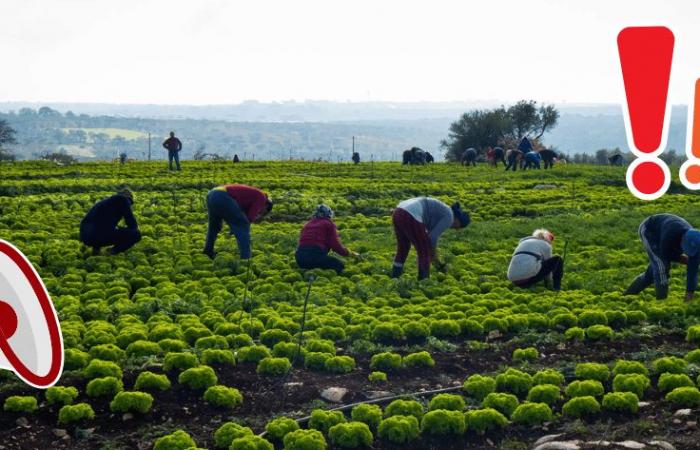What happened in recent days in Latina with the death of Satnam SinghIndian organ worker, should make us think. Net of the inhumanity of an employer who should be considered a vulgar masterwhat happened should push us to go beyond the indignation of the moment. And, trying for a moment to overcome the macabre and the disgust, make us reflect on what has become today the Work. With some considerations I want to try to trace this change that, from conceptual, has also transformed the form and daily substance of this activity.
If work becomes a cost item to be cut as much as possible
Over the years the work concept has changed profoundly. Without wanting to go into the declination of economic theories on the topic, I want to underline how in the past work was considered one of the fundamental elements for obtaining production, while today it is considered a production factor included in the cost itemthat is, equated to the tractor and the hoe. Therefore, an item to economize on to maximize profit.
From this first consideration it emerges that a company constantly tends to reduce the cost of labor. From here illegal creativity reigns supreme to the detriment of ethics, which is why the safety in agriculture is close to zero; it is spreading black and grey work; underpayment and street wages become the norm (to the detriment of collective bargaining) and therefore wages of 3-4 euros per hour in certain places they become common.
Another concept must also be explained which in itself gives a specific dimension. The concept is that of job market, that is, as an oxymoron, the work that is subject to the logic of the supply-demand market, work treated like a commodity, like a tomato or like any vegetable. Therefore, the more workers there are (more hands, more slaves) for the same number of companies (the territorial extension is static), the lower the bargaining power of the individual worker and the greater will be that of the company which, in this case, determines the salary. Not caring whether a contract exists or not (national and provincial) and leveraging the individual’s need status. An action that is then spread to the generality of workers, citing themes such as “if you don’t come, I’ll find a hundred others”.
Consumers’ responsibilities in fueling the exploitative market
This condition, or rather this deformation, does not only concern the agricultural sector but is becoming more and more general. And here the concept of labor market is transformed into exploitation market and that, as a community, we wake up from our torpor only when events like the one that struck poor Satnam Singh occur. A worker like many (too many) who leaves home in the morning with the hope of bringing home a few euros to survive and who will never come back again because, for a master or for the corporal, his life is worth nothing. His dignity (in life and in death) is worth as much as the hoe: once broken, you throw it away and buy another one.
How many more Satnam Singhs will have to die at the hands of crude and inhuman masters and foremen before we, as a collective, will give a boost of energy and we will move from indignation to action? Too often, as a collective, we fail to realize the immense power we have in our hands. We consider ourselves observers of events and dynamics and we forget, or hide from ourselves and our consciences, that we are the ones who they feed (I hope unknowingly) certain conditions.
Newsletter
Subscribe to Values
The best of ethical finance and sustainable economy news.
The death of Satnam Singh It should be a warning to all of us, as a community.
I know for sure that many readers will now criticize this statement, will say or think: “But how? Us? We are innocent!” But no, the reality is this. The community, the moment it consumes, it becomes the creator and feeder of a market that determines these conditions. If we are not careful with our consumption, which is often generalized and not very conscious or based exclusively on savings, we are ourselves feed the market. An old economic theory said that “bad money drives out good money”. Therefore, if we are not attentive and informed consumers, in the end we risk rewarding bosses for whom the cost of labor must be reduced to the minimum. But not to stay within production costs, but rather to maximize personal profits and perhaps buy the latest mega SUV at the end of the campaign. Paid, of course, with the blood of the many Satnam Singhs.
I think, I hope, that on the one hand the agricultural world rediscovers its social function starting again from ethics, so that good money limits and drives out bad money and we focus on healthy productions both from an organoleptic and ethical point of view. And on the other hand, we all, as consumers, are increasingly oriented towards products where the many Satnam Singhs are recognized as dignity. In first as human beings and then as workers.
Support Values!
On the side of ethics, climate, rights and equality. Like you. Support us!
Donate with Satispay



